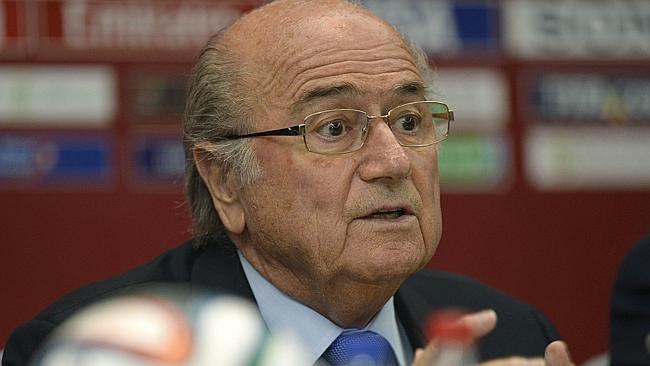Brazil cup planning too late, says Sepp Blatter
FIFA president Sepp Blatter has accused Brazil of being way behind in its World Cup preparations.

A ROW between Brazil and football's world governing body has worsened after Sepp Blatter accused the country of being further behind in its World Cup preparations than any host nation he had dealt with since he took office in 1998.
The FIFA president said Brazil had no excuse for its tardiness. "Brazil has started work much too late," he said. "It is the country with the biggest delays in World Cup preparations since I became president. And it is the one that had the most time to get ready - seven years."
Six of the 12 stadiums to be used in the tournament, which begins in June, are expected to be completed well after schedule. The Sao Paulo venue, which will stage the opening match on June 12, is expected to be ready some time in May, after an accident that killed two workers last month.
President Rousseff defended her country on Twitter, saying that the tournament would be the "Cup of Cups", and the Sports Minister, Aldo Rebelo, insisted: "The country will be ready on time."
Mrs Rousseff and Mr Blatter were booed when they attended a Confederations Cup match last summer, a warm-up for the World Cup. Crowds vented their anger at the 9 billion pounds ($16.47m) spent on sporting facilities rather than the cash-strapped nation's social needs.
In an ominous sign for Fifa and the Government, the Folha de Sao Paulo newspaper said that protest groups planned to stage their first anti-World Cup demonstration in state capitals across the country on January 25, with the slogan: "There will be no Cup."
Police have formed a 10,000-strong riot squad to deal with unrest.
Relations between Fifa and the Brazilian Government have been severely strained over the hosts' perceived lack of preparedness. In 2012, the FIFA secretary-general, Jerome Valcke, said Brazil "needed a kick up the ass", a comment Mr Rebelo deemed "unacceptable".
The Government does, however, appear willing to respond to Fifa concerns that private airlines are preparing to inflate their prices heavily to take advantage of the hundreds of thousands of fans forced to travel vast distances between cities hosting World Cup matches. Mrs Rousseff's chief of staff said the President was considering using extraordinary decree powers to allow foreign airlines to operate internal flights during the Cup. "We have not taken a decision as yet, but if there is abuse, that is one of the measures being considered," said Gleisi Hoffman.
Poor public transport means that most fans will have to use local airlines. The distance between Manaus, where England play their first match against Italy, and Belo Horizonte, where they face Costa Rica, is 2,550 miles, which would take about three days to drive.
The Times


